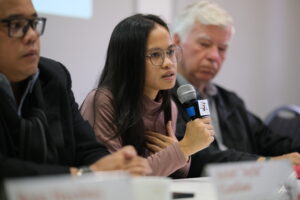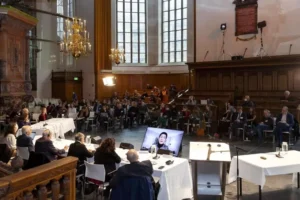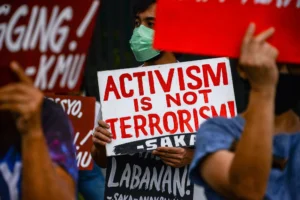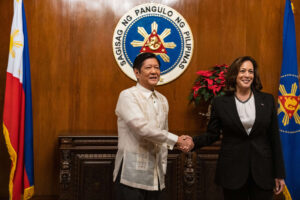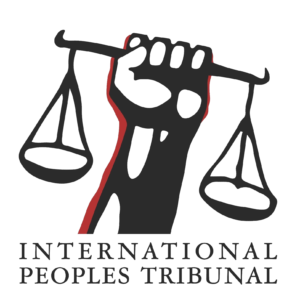By Satur Ocampo, Philippine Star
This month, on May 17-18, the International Peoples’ Tribunal, a quasi-judicial forum periodically convened in Europe, will focus on the Philippines for the sixth time since 1980.
It was in the fall of 1980 that the forum, then called the Permanent Peoples’ Tribunal, earned the distinction of being the first international quasi-juridical body to condemn the Marcos dictatorship. After hearing the two cases filed against Ferdinand Marcos Sr. – separately filed by the National Democratic Front of the Philippines and the Moro National Liberation Front – it found his dictatorship liable for war crimes or violations of international humanitarian law.
Thereafter renamed as the International Peoples’ Tribunal, the IPT has carried out a series of hearings on the Philippines – in 2005, 2007, 2015 and 2018. In all these cases, the IPT found the defendant Philippine presidents liable for the serious crimes attributed to them.
In every instance, the IPT has been constituted by a panel of jurors – legal experts and prominent human rights personalities. The panel follows a structured legal process, guided by the standards of due process and credible evidence. An international team of prosecutors presents in-person and recorded testimonies from witnesses and victims, plus analyses and opinions by experts, sworn statements, studies, reports and other documents. An opportunity is provided for the defendant/s to be heard, but never availed of.
After due deliberations, the panel presents a summary and preliminary verdict based on the evidence and inputs presented to them. A full and elaborated verdict shall be issued in due time.
Although its findings are not legally binding, the IPT rulings carry significant political and moral weight, according to Robert Reid, the New Zealand recently-retired trade union leader who is head of the Friends of the Filipino People in Struggle (FFPS).
“The verdict of the IPT can serve as a powerful tool for raising awareness and mobilizing public opinion on atrocities and injustices committed by the defendants,” Reid pointed out. It “provides further international pressure for official investigations to be conducted or legal actions to hold perpetrators accountable for their crimes.” Ultimately, it “contributes to the documentation of historical truths, shape international public opinion.”
This year, the IPT will once again convene to hear “the case of the Filipino people versus the US-backed counterrevolutionary war of the Duterte and Marcos regimes and their alleged violations of International Humanitarian Law (IHL).”
Convened under the auspices of the FFPS and the International Association of Democratic Lawyers, this year’s tribunal seeks to address the alleged war crimes committed by the “US-Duterte regime (2016-2022)” and the current “US-Marcos regime (2022-present).” Specific focus is on how the two administrations have pursued their respective counterinsurgency operations patterned after the US National Security Strategy and the US 2009 Counterinsurgency Guide.
The 2009 guide introduced the concept of a “whole-of-nation approach” which combines military, political, economic and social measures to counter those the US government deems as “terrorists.” This document inspired the two bloody counterinsurgency “Oplans Bantay Laya” carried out by the Gloria Arroyo regime; much more so the Duterte administration’s notorious National Task Force to End Local Communist Armed Conflict (NTF-ELCAC). Marcos Jr. and Sara Duterte praised the latter during the 2022 presidential campaign and have pursued its implementation under their current administration.
According to the convenors’ primer, the tribunal “will examine violations of international humanitarian law both as to the means and methods of warfare and the objects and subjects of attack, including extrajudicial and summary killings of civilians and hors de combat, desecration of remains of combatants, massacre of civilians and other forms of collective punishment, torture, enforced disappearances, mass arrests” as well as “indiscriminate firing, indiscriminate aerial bombing of communities and use of white phosphorus bombs, hamletting, terrorist labelling and use of repressive terror laws, assassination of civilians, attacks on schools, fake or forced surrenders, attacks against peace consultants and other forms of suppression.”
This article was originally published on Philstar Global

